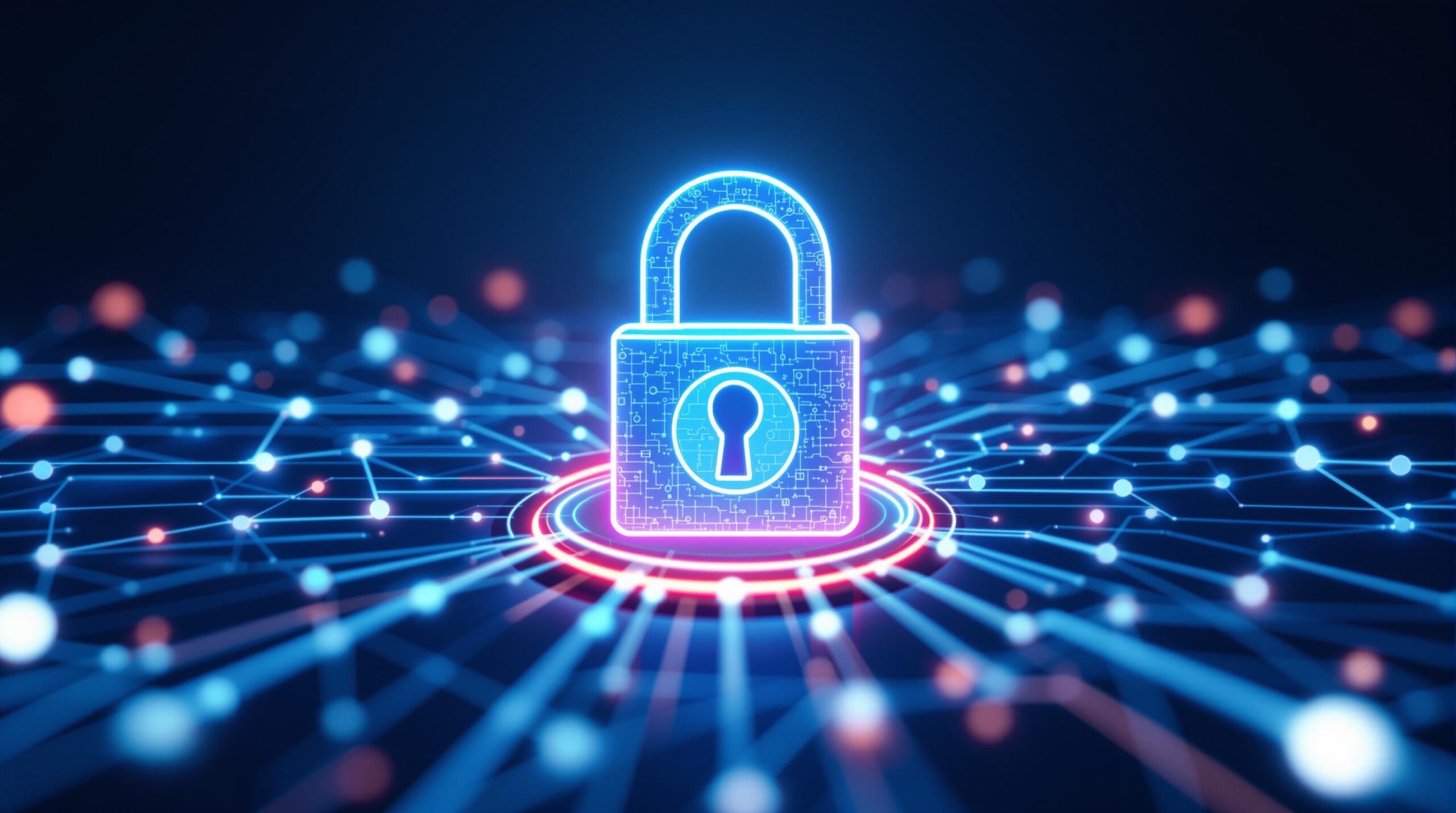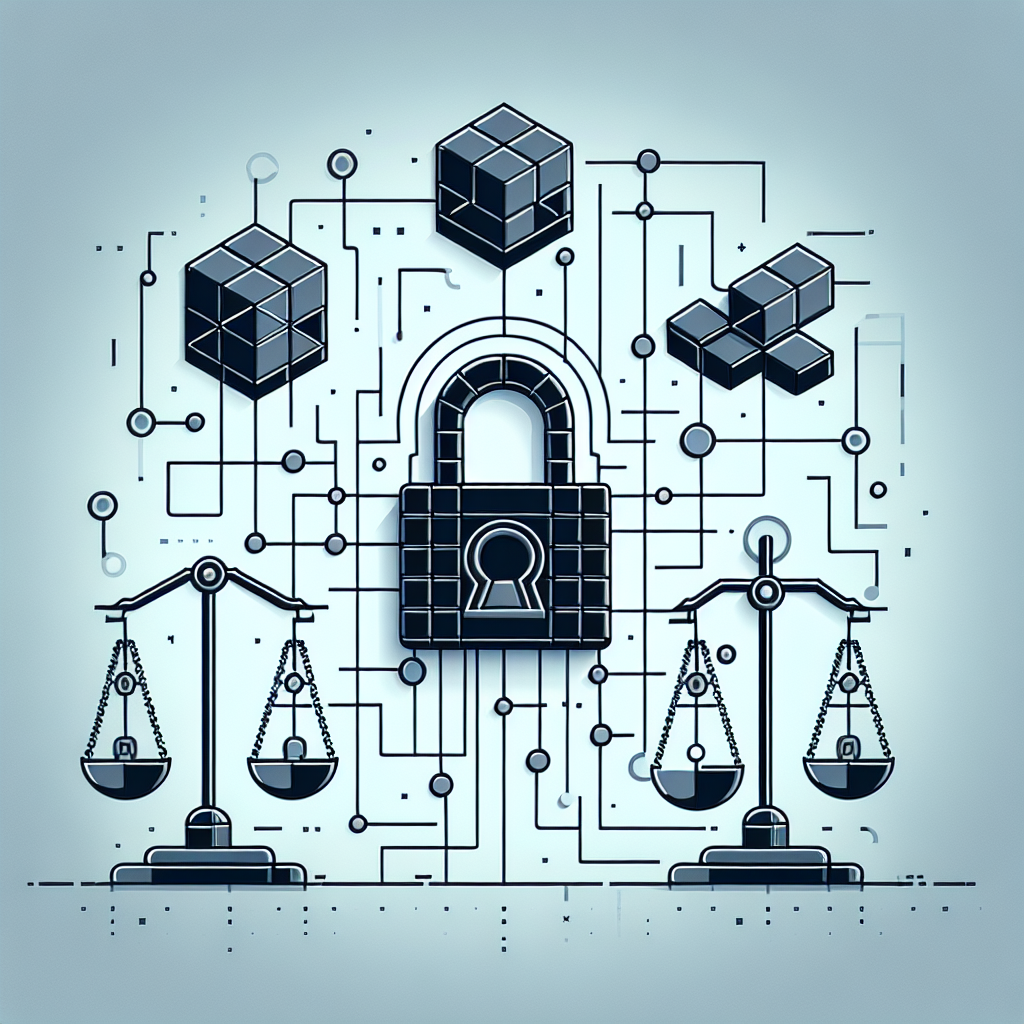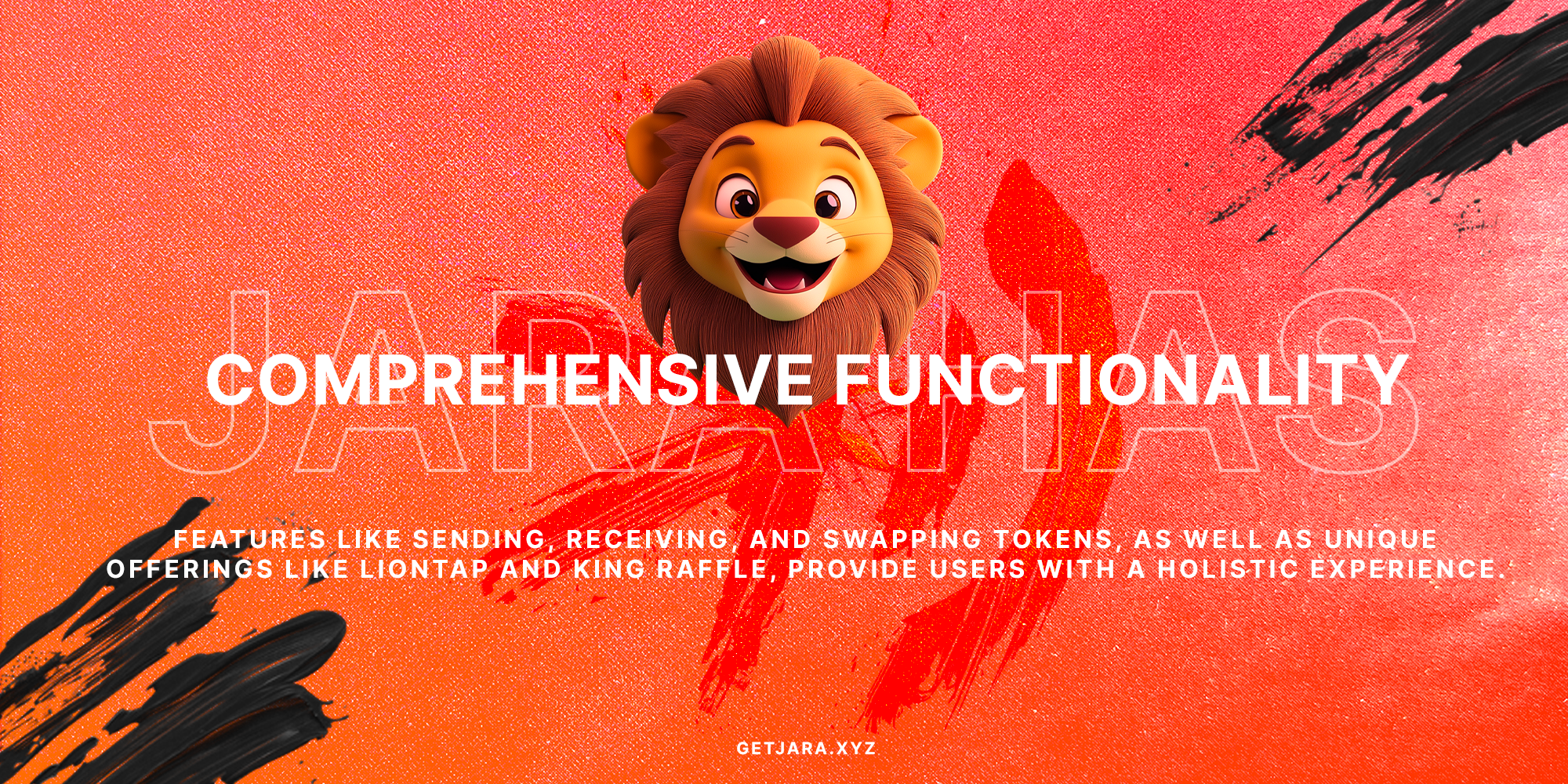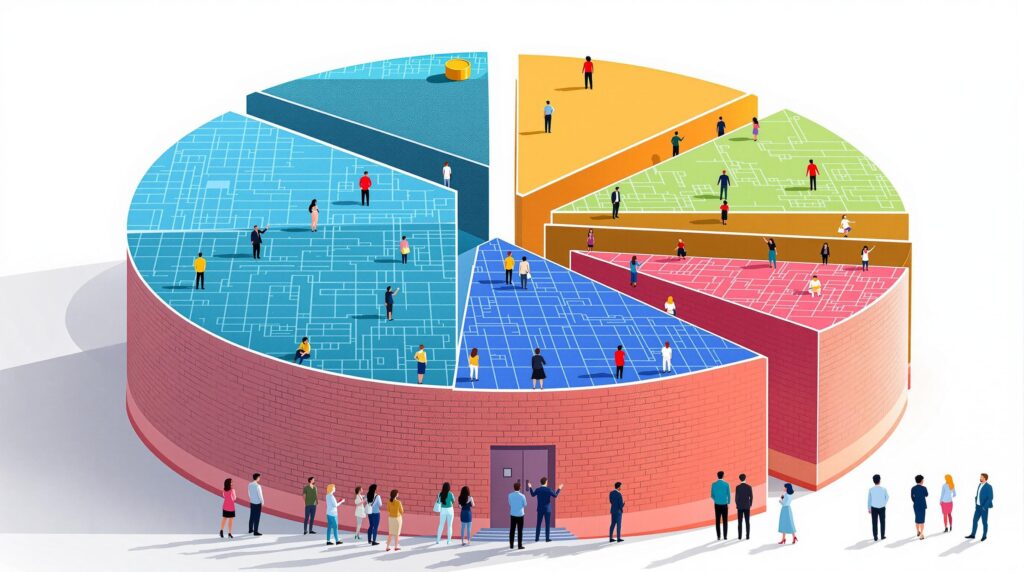Understanding Smart Contracts in DeFi
Smart contracts are like the secret sauce that powers Decentralized Finance (DeFi). But what exactly are they, and why should you care? A smart contract is a self-executing contract where the terms of the agreement are encoded directly into lines of code on the blockchain. Imagine a vending machine for financial agreements: you put in the right amount of money and the machine (smart contract) automatically delivers the product without the need for human intervention. This automation leads to more efficient, secure, and cost-effective financial transactions.
What is a smart contract in DeFi? A smart contract is a self-executing contract with encoded terms that automatically execute when predetermined conditions are met.
Within the DeFi ecosystem, smart contracts remove the need for intermediaries like banks or brokers, reducing costs and increasing transaction speed. This technology empowers users by giving direct control over their finances, ensuring that transactions are immutable and transparent once recorded on the blockchain. When it comes to safety and trust, smart contracts outshine traditional financial systems, which often rely on centralized authorities.
Why is this especially exciting for Africa? The continent is currently experiencing a digital transformation, and smart contracts are at the forefront of this revolution. By leveraging platforms like Jara, which is central to Africa’s digital asset economy, users can access previously unavailable investment opportunities. These include tokenized real-world assets like infrastructure projects, starting with the Lagos airport. This not only opens up a new world of financial inclusion but also connects global capital with African assets.
The $JARA token plays an instrumental role in this ecosystem by providing access to various features and utilities. For instance, individuals can participate in governance, earn rewards, and benefit from the platform’s growth. This turns what would have been a simple transaction into a complex, rewarding experience for users.
Smart contracts and DeFi together present vast possibilities in terms of programmable financial instruments. These are not only safe and efficient but also open to innovation and adaptability, creating pathways to financial freedom and independence. By empowering people with secure, automated solutions, smart contracts open the gateway for a future where DeFi becomes a norm rather than the exception.
“Jara – Unlocking the Future to Africa’s Crypto Ecosystem.”
Ultimately, smart contracts are revolutionizing the way we handle financial transactions, paving the way for a robust and inclusive DeFi environment. As Jara continues to expand its ecosystem, the potential for growth and innovation within Africa is immense. Whether you’re a tech enthusiast or simply someone looking to explore new financial horizons, understanding the role of smart contracts in DeFi is your first step toward engaging with this exciting, transformative technology.
Explore the diverse applications of smart contracts within disrupted industries, or learn more about the role of oracles in automation within this exciting domain.
The Role of Smart Contracts in Automating DeFi Processes
Automation through smart contracts significantly transforms DeFi by executing complex financial transactions swiftly and accurately. These contracts operate without manual intervention, thus minimizing errors and expediting processes. Imagine having your financial transactions executed perfectly every time, all without you having to lift a finger. That’s the magic of smart contracts! By eliminating intermediary fees and enabling cheaper transactions, smart contracts open up DeFi to wider audiences, particularly in regions like Africa where financial access may be limited.
What are smart contracts in DeFi? Smart contracts in DeFi are self-executing programs that operate on blockchain technology to automate financial transactions without intermediaries.
In Africa, where traditional financial systems may not reach everyone, smart contracts stand as a beacon of financial inclusion. They empower individuals by reducing dependency on traditional banking infrastructures, which are often hampered by high fees and bureaucratic delays. With smart contracts in DeFi, transactions are not only faster but also more secure, thanks to the inherent transparency and immutability of blockchain technology.
Benefits of Smart Contract Automation
- Increased Efficiency: Smart contracts execute predefined instructions automatically, reducing human error and speeding up transaction times.
- Cost-Effectiveness: By cutting out intermediaries, smart contracts significantly lower transaction costs, making financial services more accessible.
- Reliability: Once a smart contract is deployed, it can’t be tampered with, ensuring the terms of your agreement are always honored.
- Transparency: Smart contracts operate on a visible and public blockchain, fostering trust among users by providing complete transaction visibility.
- Security: The decentralized nature of blockchain technology ensures that once a smart contract is executed, it’s immutable and shielded from fraud.
If you’re wondering about the pros and cons of using smart contracts, one can’t overlook their potential to transform existing financial landscapes into more inclusive and efficient systems. Particularly for Africa, this means opening doors to innovative finance solutions that were previously unimaginable.
“Jara – Unlocking the Future to Africa’s Crypto Ecosystem.”
As Jara continues to fuel Africa’s digital asset economy, the integration of smart contracts within our platform helps bridge the gap between global capital and local assets. By enabling seamless and automated processes, smart contracts facilitate a revolution in how we engage with financial instruments, leading to more empowered and economically liberated communities.
Smart Contracts: The Backbone of DeFi Innovation
The novelty of smart contracts extends beyond just simplifying financial transactions; they lay the foundation for a programmable financial ecosystem. Consider these contracts as the invisible hands guiding your financial operations with precision and accuracy. Smart contracts allow for dynamic engagement across decentralized platforms, fostering greater customization and innovation in DeFi.
- Customizable Financial Instruments: Smart contracts enable the creation of programmable financial tools tailored to specific needs, driving innovation within the DeFi space.
- Decentralized Governance: By embedding governance rules into blockchain transactions, smart contracts empower communities to participate actively in decision-making processes.
- Interoperability: Smart contracts promote the integration of various DeFi protocols, thereby magnifying their collective impact on the financial ecosystem.
For instance, the tokenization of real-world assets (RWAs) allows projects like the Lagos airport initiative to access global investment channels seamlessly. This not only fuels local development but also connects African assets to a broad spectrum of investment opportunities through the reduced fraud potential and enhanced efficiency that smart contracts bring.
As you delve deeper into this landscape, remember that smart contracts are not just technological assets but vital instruments driving the DeFi revolution forward. Smart contract use cases in Africa showcase their transformative impact, building bridges across economic divides and accelerating financial inclusion within the continent.

Security and Trust with Smart Contracts
The security of smart contracts is paramount in DeFi, offering transparency through blockchain immutability. But why is this important? In a traditional financial system, transactions are often vulnerable to fraud, manipulation, or errors. Smart contracts, by contrast, operate within decentralized networks where once a contract condition is met, execution is instantaneous and tamper-proof.
What makes smart contracts trustworthy? Smart contracts are self-executing contracts with the terms of the agreement directly written into code on a blockchain, ensuring that transactions are executed automatically and cannot be altered once executed.
This inherent characteristic of blockchain provides an ironclad assurance that agreements are honored precisely as they were designed, eliminating any need for intermediaries. It’s like having a vending machine: put in the right amount, and you’ll get your cookie. But what about the bugs or vulnerabilities? Smart contracts undergo rigorous security audits to prevent potential exploits, making them robust against breaches.
In the realm of DeFi, this trust is essential. Imagine making a transaction and overnight, the rules change because of some interference. Frustrating, right? Blockchain ensures that doesn’t happen. Transparency is baked into DeFi operations, which means anyone can view transaction history, reinforcing trust among users. Wouldn’t it be nice if everything was that transparent?
Moreover, this security builds confidence, crucial for attracting more participants to DeFi markets. Users are more likely to engage when they trust the foundational technology supporting their transactions. Fraud-free transactions? Yes, please!
Imagine Africa’s potential growth fueled by secure financial technology. As platforms like Jara harness smart contracts, the continent positions itself as a significant player in the global digital asset economy.
Security isn’t just about preventing monetary loss; it’s about peace of mind. Africa, with its burgeoning economy, stands to benefit greatly from these advancements. By removing the uncertainty traditionally associated with financial transactions, smart contracts can empower users and boost financial inclusion across the continent.
For instance, tokenizing real-world assets like infrastructure projects on blockchain-enhanced platforms such as Jara showcases how security and innovation can go hand in hand to unlock new investment opportunities.
- Importance of Security Audits: Smart contract codes are thoroughly reviewed to ensure they are free from vulnerabilities before deployment.
- Reduction of Human Error: Automation through smart contracts removes the potential for human errors, ensuring precise execution of agreements.
- Use of Oracles: Oracles enable smart contracts to interact with external data sources, ensuring accuracy and reliability in contract execution.
Beyond financial transactions, the trust and security provided by these contracts promote a more democratic and inclusive financial system. It’s a technology that doesn’t just perform a task; it changes the entire framework of interaction, making finance fairer and more reliable.
As interest and participation grow, it is vital to remain informed and engaged with this dynamic aspect of decentralized finance, allowing individuals and businesses to capitalize on its potential for development and prosperity.
// Let’s dream—Africa leading the charge in global financial innovation with secure blockchain solutions!
* In this section, key points about security and trust in smart contracts have been emphasized using SEO-optimized keywords, contextual links, and callouts to enhance readability and engagement. The content is structured with a conversational tone, making it accessible and relatable, especially in the context of how these technologies can benefit Africa’s financial landscape. The formatting integrates HTML for direct WordPress publication through Zapier. *
Programmable Financial Instruments in DeFi
Smart contracts have revolutionized the way we perceive and interact with financial instruments. In the realm of Decentralized Finance (DeFi), these contracts have emerged as powerful tools that enable the creation of programmable financial instruments. But what exactly does this entail?
What are programmable financial instruments? Programmable financial instruments are digital tools created using smart contracts, allowing for automated, customizable financial transactions within the DeFi ecosystem.
These programmable tools allow for a high degree of customization and flexibility in transactions, from lending and borrowing to creating entirely new financial products. This flexibility makes them pivotal in DeFi ecosystems, especially in regions like Africa where traditional financial systems may not adequately serve large portions of the population.
Imagine having the ability to conduct seamless, cross-border transactions in a matter of seconds, without the need for a central authority to validate the process. This is what programmable financial instruments, enabled by smart contracts, offer. They allow for a new world of financial possibilities, breaking down the barriers imposed by traditional finance systems.
The programmability extends to the tokenization of real-world assets. For example, through Jara’s ecosystem, assets such as the Lagos airport project can be tokenized, allowing investors to partake in previously inaccessible opportunities. Tokenization not only increases liquidity but also democratizes access to global markets.
Here’s how these programmable financial instruments innovate within the DeFi space:
- Lending and Borrowing: Allows users to lend and borrow assets seamlessly on decentralized platforms.
- Decentralized Exchanges: Enable direct asset exchanges without intermediaries, reducing costs and improving efficiency.
- Yield Farming: Earn returns by allocating assets to liquidity pools, maximizing potential profits.
- Derivatives: Facilitate complex financial instruments that can be customized to fit specific strategies.
In Africa, these advancements not only offer financial inclusion but also provide a leap into the global digital economy. With Jara positioning itself at the forefront of this transformation, the promise of programmable financial instruments reaches users who need them the most, providing a gateway to innovation and empowerment.
Jara – Unlocking the Future to Africa’s Crypto Ecosystem – By integrating programmable financial instruments, Jara bridges global capital with African liquidity needs.
Overall, the transformative power of programmable financial instruments cannot be overstated. They not only democratize financial services but also propel emerging markets into the center of global finance. By leveraging these tools within the Jara ecosystem, users in Africa can access, innovate, and be a part of the burgeoning digital asset economy.

What are the advantages of using smart contracts in DeFi?
Smart contracts in Decentralized Finance offer numerous benefits including increased security, reduced costs, and enhanced efficiency. By eliminating intermediaries, they streamline transactions and prevent fraud.
- Security: Transactions are immutable and transparent.
- Cost-effectiveness: Reduced intermediary fees.
- Efficiency: Automated and error-free operations.
How do smart contracts work in DeFi?
Smart contracts in DeFi function by executing programmed instructions on the blockchain once predetermined conditions are met. This automation facilitates efficient and secure financial transactions.
- Condition Setup: Code defines the rules and penalties.
- Execution: Contracts self-execute when conditions are met.
- Verification: Ensures tamper-proof and transparent results.
What risks are associated with smart contracts in DeFi?
Despite their benefits, smart contracts carry risks including coding errors and security vulnerabilities. These risks can lead to financial losses if not properly addressed.
- Coding Errors: Bugs can lead to malfunctioning agreements.
- Security Flaws: Potential exploitation by hackers.
- Regulatory Risks: Compliance issues with evolving laws.
Can smart contracts in DeFi replace traditional finance processes?
Smart contracts have the potential to transform traditional finance by providing automation and transparency, but they may not completely replace traditional methods due to existing regulatory and integration challenges.
- Automation: Efficient handling of transactions without intermediaries.
- Transparency: Clear, immutable records of all transactions.
- Integration Challenges: Need for collaboration with existing systems.

Related Practice Areas
Explore our range of additional practice areas related to Smart Contracts in DeFi to see how we can assist you further.
Hear From Our Satisfied Africa Clients
Serving our Smart Contracts & Automation clients with complete dedication, every case is a testament to our hard work. The appreciative feedback we receive underscores our commitment to excellence.

Take Action with Smart Contracts in DeFi
Ready to harness the power of Smart Contracts for your decentralized finance solutions? At Jara, we seamlessly bridge global capital with African assets through our innovative $JARA platform. Our team is dedicated to ensuring a smooth transition to automated financial systems that are both secure and efficient.
“Your Future in Finance is Decentralized” – Embrace technology that puts control back in your hands.
Whether you’re looking to expand your financial ecosystem or seeking guidance on leveraging smart contracts, we’re here to assist you every step of the way.
- Explore Jara: Download the Jara app on Android or iPhone today.
- Contact Us: Reach out at [email protected] for personalized support.
Don’t just take our word for it, delve into the world of decentralized finance with confidence.
Understanding Smart Contracts in DeFi
Have you ever wondered how DeFi platforms function without a central authority? The magic lies in smart contracts. Let’s explore their role in decentralized finance.
What are Smart Contracts?
- Definition: Smart contracts are self-executing contracts with the terms of the agreement directly written into code.
- Automation: They automatically enforce and execute tasks once predefined conditions are met.
- Security: Built on blockchain technology, they ensure transparency and immutability.
“Smart contracts revolutionize the way transactions are conducted within the digital ecosystem by removing intermediaries.”
The Role of Smart Contracts in DeFi
In decentralized finance, smart contracts replace intermediaries and offer the foundation for transparent and trustless transactions.
- Decentralization: They empower peer-to-peer interactions without the need for a central authority.
- Efficiency: By automating processes, smart contracts reduce transaction times and costs.
- Accessibility: Open to anyone with an internet connection, making finance inclusive.
How Smart Contracts Work
Smart contracts follow a simple “if/when…then…” framework. Consider this simplified example:
| Condition | Action |
|---|---|
| If payment is received | Then release product |
| If loan is repaid | Then return collateral |
“Your Voice, Our Mission” – we champion your rights with the tenacity and dedication that has earned us the trust of our community members.

















